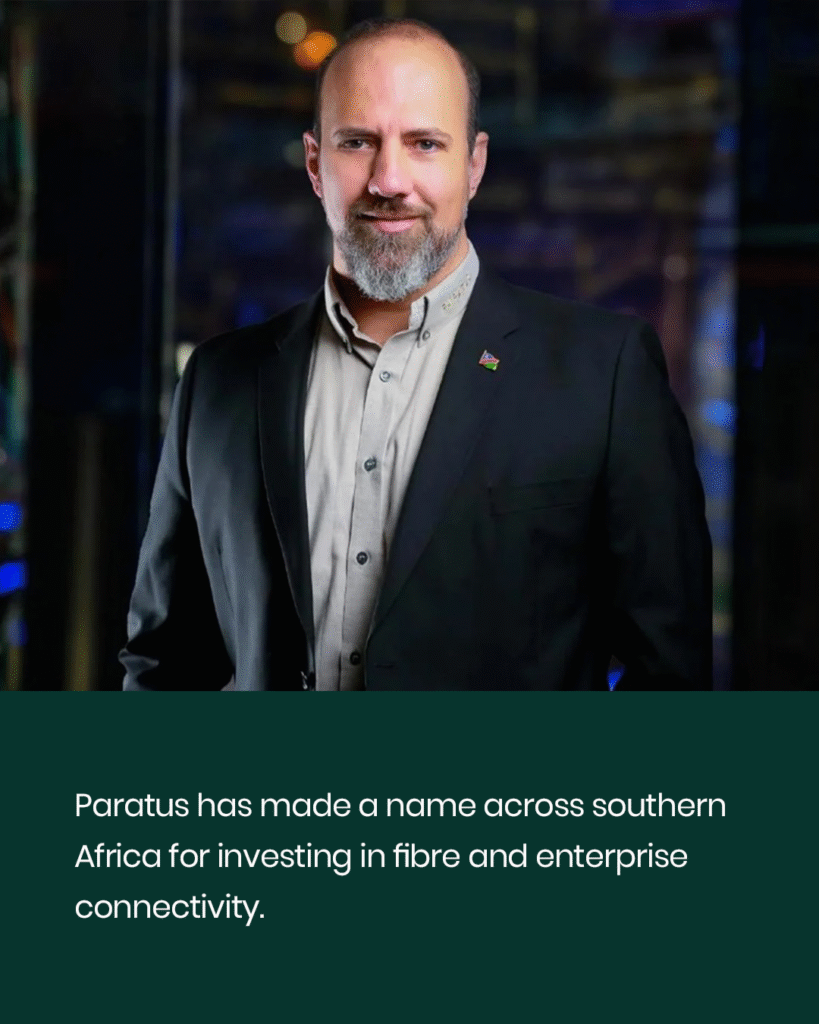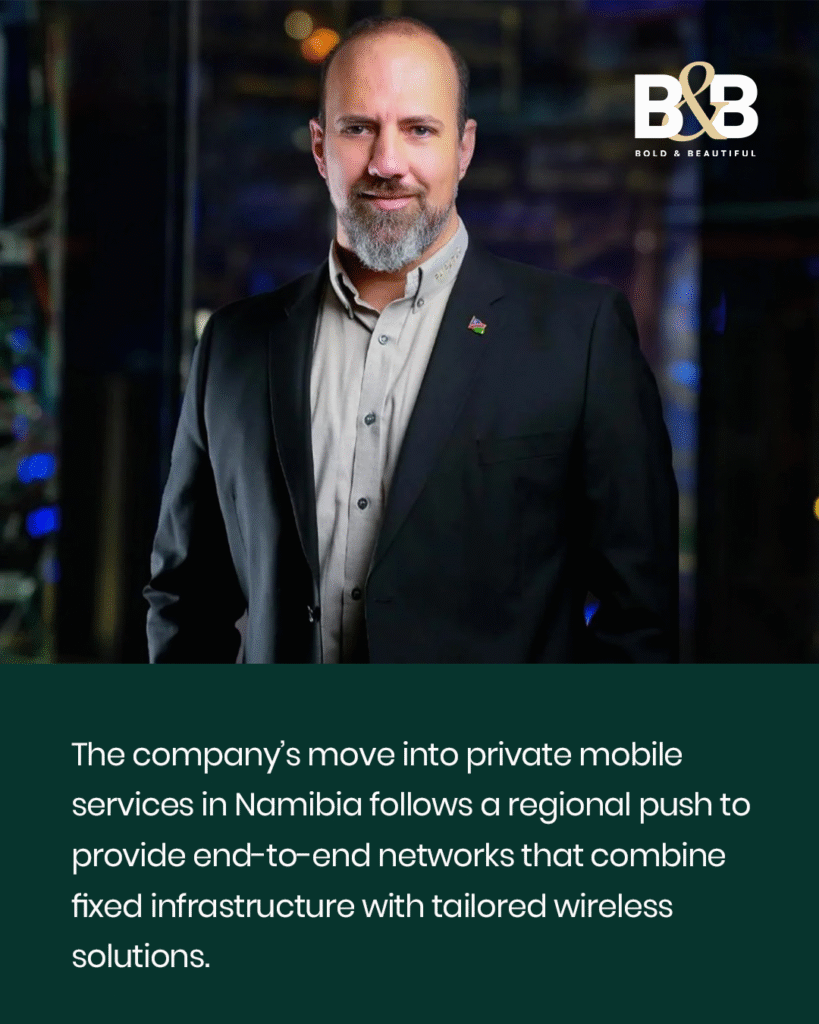Paratus, under the leadership of Schalk Erasmus, has launched Namibia’s first private mobile network. The rollout marks a new phase for the country’s digital infrastructure, offering dedicated wireless capacity designed for businesses, government agencies and industrial operators that require secure, reliable and low-latency connectivity.

A private mobile network gives a single organisation its own licensed or managed wireless environment. That means consistent coverage inside factories, mine sites and ports, deterministic performance for real-time systems, and tighter control over data flows and security policies compared with shared public networks. Organisations can run critical applications, connect Internet of Things devices and keep sensitive traffic inside a dedicated domain.
Paratus has made a name across southern Africa for investing in fibre and enterprise connectivity. The company’s move into private mobile services in Namibia follows a regional push to provide end-to-end networks that combine fixed infrastructure with tailored wireless solutions. The new service is positioned as a turnkey option for firms that prefer procurement of managed communications rather than building and operating complex networks themselves.

Namibia’s economy features sectors that stand to benefit immediately. Mining operations dispersed across remote terrain need resilient links between pits, processing plants and control rooms. Ports and logistics hubs require reliable wireless for cargo tracking and automated handling. Agricultural producers and energy companies can use dedicated networks to support sensors, remote monitoring and predictive maintenance. For each of these uses, a private network lowers operational risk and can increase productivity.
Paratus’s commercial model will matter. Private networks often require partnership with equipment vendors, spectrum coordinators and systems integrators. Companies typically choose between outright ownership of their infrastructure and a managed service model where the provider supplies and operates the network. Paratus has emphasised practical, service-led offerings in other markets, and similar commercial flexibility will be essential to win customers in Namibia.

Regulation will shape the network’s pace and reach. Private deployments require careful coordination with the national communications regulator and with holders of spectrum licences. Policymakers must balance efficient spectrum use with incentives for industry to invest in bespoke networks. A clear regulatory pathway can accelerate deployments while ensuring spectrum is used responsibly and that national priorities are protected.
The economic effects extend beyond immediate clients. Building and operating private networks creates demand for local engineers, installers and operations staff. It can stimulate the local supplier ecosystem for radio planning, cybersecurity and edge computing. Over time, improved industrial connectivity can support higher-value services and attract investment into sectors that rely on dependable digital infrastructure.
The arrival of a private network also raises competitive pressure on established carriers and new entrants. Incumbent operators will need to sharpen their enterprise propositions, while alternative providers may pursue similar offers in niche verticals. Ultimately, competition of this kind tends to deepen market choice and drive faster adoption of advanced services.
For Namibia, the Paratus rollout is an infrastructure milestone. It broadens the country’s toolkit for industrial modernisation and gives firms a new path to connect operations that have been underserved by public mobile coverage. The practical test now is adoption: how quickly major industrial and logistics players sign up, and how effectively the service meets the strict reliability and security standards these sectors demand.
If businesses embrace private mobile networks, Namibia can expect measurable gains in operational resilience and efficiency. The launch led by Schalk Erasmus is a sign that enterprise connectivity is moving from pilot projects into commercial deployment. That shift will determine how quickly the country captures productivity improvements tied to real-time data, automation and expanded digital services.





